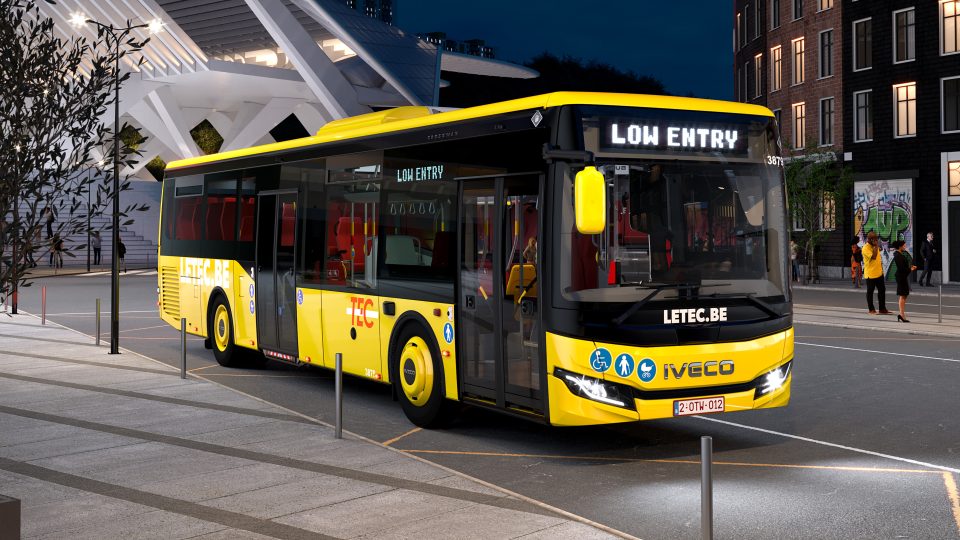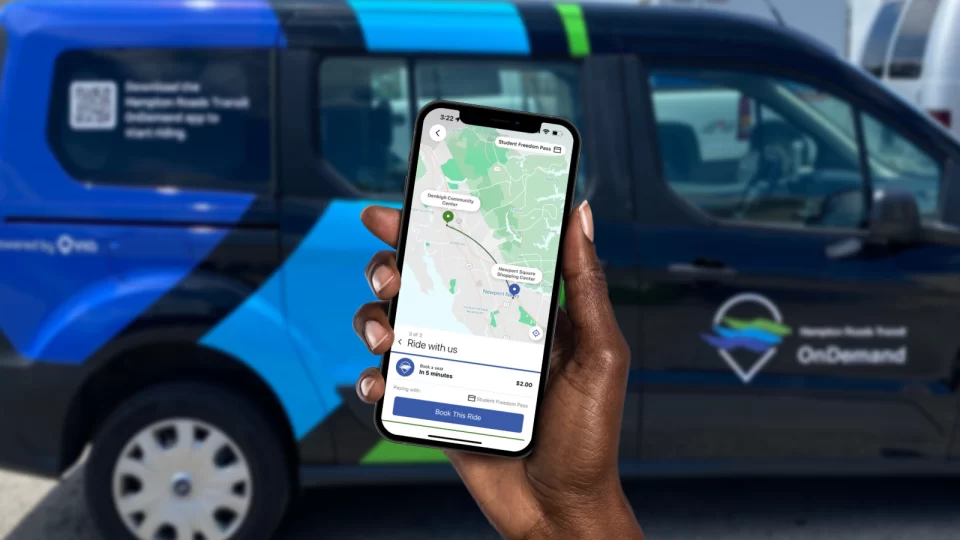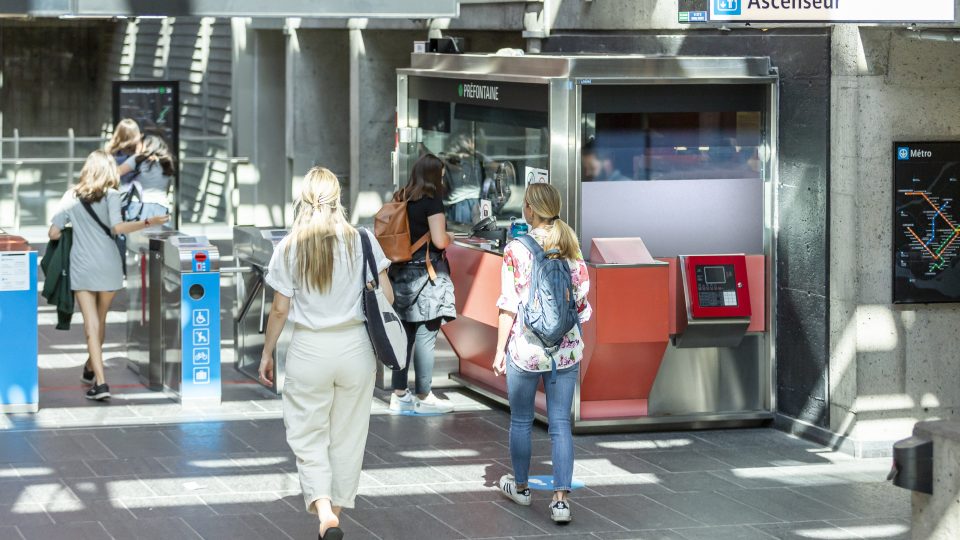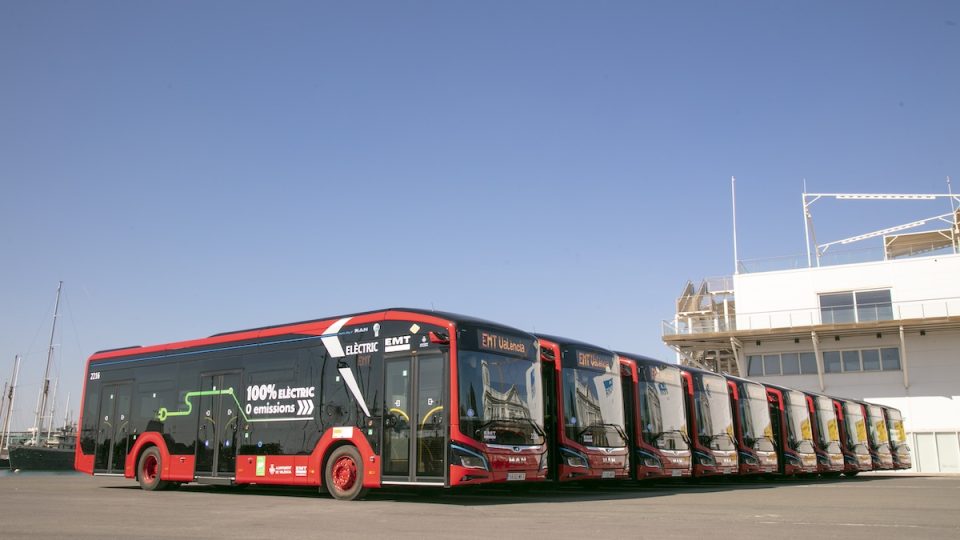$1 billion investment in zero emission bus fleets in Latina America. ZEBRA project announces the goal is achieved
A coalition of international investors has signed a commitment with the Zero Emission Bus Rapid-deployment Accelerator (ZEBRA) to invest more than a billion U.S. dollars in zero-emission public bus fleets in Latin America. The ZEBRA partnership announced today at the UN Climate Change Conference (COP26) that the goal has been accomplished. Additionally, new manufacturers (including Volvo) will ramp […]
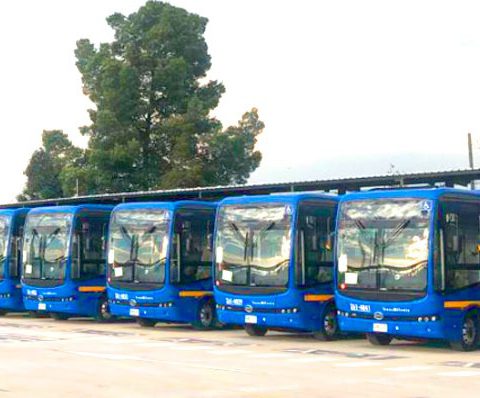
A coalition of international investors has signed a commitment with the Zero Emission Bus Rapid-deployment Accelerator (ZEBRA) to invest more than a billion U.S. dollars in zero-emission public bus fleets in Latin America. The ZEBRA partnership announced today at the UN Climate Change Conference (COP26) that the goal has been accomplished. Additionally, new manufacturers (including Volvo) will ramp up the production of these vehicles for the region, still ZEBRA says.
Currently, Latin America has nearly 2,500 electric buses in operation. An additional 2,000 e-buses are expected to be deployed in the coming year.
Mayor of London and C40 Chair-elect, Sadiq Khan, joins with U.S. Secretary of Transportation, Pete Buttigieg, at COP26 to champion the importance of green public transport to achieve net-zero and keep to 1.5 degree target. C40 and ICCT, through the ZEBRA initiative, work with Latin American cities to enable a just transition and deliver support needed for cities in the global south
ZEBRA partnership, over 1 billion dollars for e-buses in Latin America
A set of investors have committed publicly via the ZEBRA partnership (led by C40 Cities and the International Council on Clean Transportation (ICCT), with funding from P4G, with the mission of supporting the deployment of over 3,000 electric buses onto the streets of Latin American cities) to make over a billion U.S. dollars available for well-prepared zero-emission bus projects in the region. These investor pledges come from AMP Capital, ARC Global Fund, Ascendal, Ashmore, Copec Voltex, EDP Brasil, Enel X, John Laing, VEMO, and VGMobility.
«With public transport use needing to double in cities worldwide to keep to the 1.5 degree warming limit, zero-emission bus fleets will be crucial in ensuring the green public transport for the future», the partnership says.
In addition to the 1 billion U.S. dollar investor pledge, «a group of bus manufacturers and distributors, including new joiners Volvo, Zhongtong, IUSA, Busscar and Rennorgy have committed to making zero-emission vehicles commercially available in Latin America and, where possible, locally produced. These commitments expanded the group of bus manufacturers with a formal interest in the region, which already counted the likes of Andes Motor, BYD, CreattiEV SAS, Foton, Higer, Sunwin, Vivipra and Yutong, all of which had signed a declaration at the end of 2020», is announced.
Currently, Latin America has nearly 2,500 electric buses that prevent the release of over 255,000 tons of CO2 emissions into the atmosphere each year. An additional 2,000 e-buses are expected to be deployed in the coming year. However, these vehicles represent less than 1% of the total regional bus fleet, demonstrating the urgency of this transition and the importance of the commitments by manufacturers and investors.
Public transport to fight climate change
C40 Cities Chair-elect and Mayor of London, Sadiq Khan, said: “Cities are leading the way when it comes to tackling the climate emergency. I want to ensure C40 mobilises more investment like this to help all C40 cities around the world speed up their efforts to tackle the climate emergency, toxic air pollution and address inequalities with inclusive climate action. I am particularly committed to doing more to support cities in the global south, which are on the frontline – facing the worst consequences of climate change. In London, I’m doing all I can to help clean up the transport network and reduce its emissions which is why London is no longer procuring new diesel or hybrid buses and is only procuring zero-emission buses. This new finance will help cities accelerate the transition to a zero carbon and greener future, with cleaner air for all.”
Carolina Urrutia, Environment Secretary for Bogotá, said: “Public-private partnerships and collaboration have been instrumental in helping Bogotá become a global leader in electrifying public transport. With 1485 e-buses already awarded, the city will no longer buy fossil-fuelled buses from 2022, which would not have been possible without the strong presence of investors and bus manufacturers in the market.”
Mark Watts, Executive Director of C40 Cities, said: “Doubling public journeys in cities is paramount for hitting international and national climate targets this decade. This ZEBRA financial commitment is an inspirational first step . C40 will be working hard with all our mayors in the global south to hitch this commitment to innovative, viable and fungible infrastructure projects to kickstart a public transport revolution around the globe that gets us to the 1.5 degree target”.
Drew Kodjak, ICCT’s Executive Director, said: “ZEBRA aims to transform the transit bus ecosystem in Latin America towards zero-emission technologies. These financial commitments showcase that the innovative business models used in the region have the capacity to unlock the private capital necessary to finance such transition. But access to capital is only one piece of the puzzle. ZEBRA has also worked to secure OEM commitments to guarantee adequate zero-emission buses supply and increase competition. Also, political leadership by city authorities, setting ambitious fleet electrification targets and the positive response from champion fleet operators in the region have created the necessary ecosystem for these innovative business models to thrive.”
New business models for e-buses in public transport
Financial innovation and new business models are helping spur investment in the e-bus market in Latin America. While upfront costs of electric buses are often higher than diesel, these costs can be offset by savings over the course of the life cycle of the e-bus (15 years on average, versus 10 for diesel buses). In Santiago, private operator Metbus found that the operational and maintenance costs of their fleet of over 400 e-buses are 70% and 37% cheaper, respectively, than an equivalent diesel bus. Innovative business models and financial mechanisms are being developed and applied to make large-scale deployments of electric buses possible, such as the separation of ownership and operation of the buses seen in Santiago and Bogotá, and the separation of ownership of bus chassis and battery in São Paulo. Business models like these — where manufacturers and investors play a crucial role — can help municipalities and private operators overcome the lack of capital and difficulty accessing credit, reducing financial risks. Over time, these investments will continue to expand the deployment of electric buses across the region.




